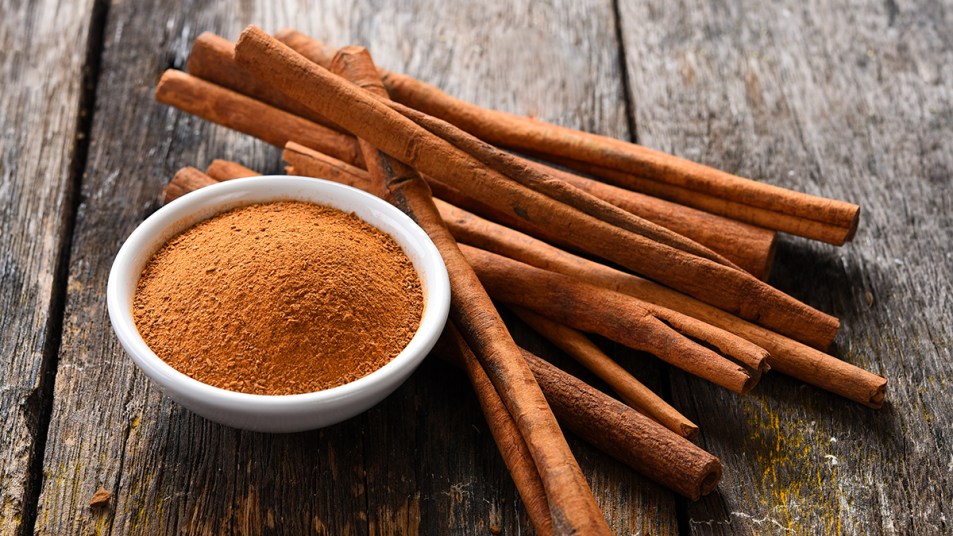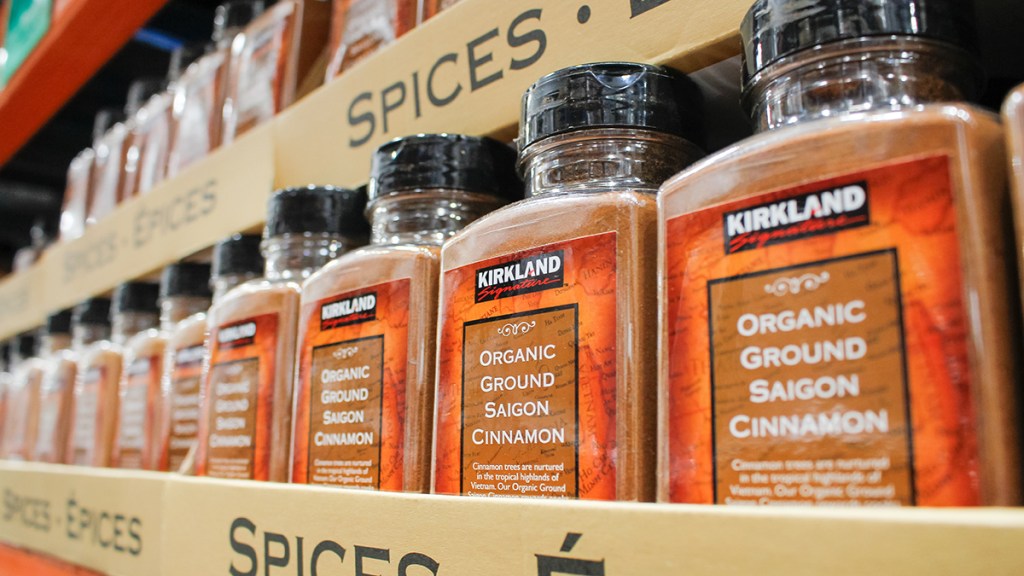The Astonishing Health Benefits of Saigon Cinnamon
Saigon cinnamon is sweet, spicy — and surprisingly good for body and mind

For thousands of years, Saigon cinnamon (also called Vietnamese cinnamon) has been a staple in holistic medicine cabinets, relied on to help treat a wide range of health issues. Saigon cinnamon also has remained a popular strong, sweet and spicy flavor in teas, sweet treats, stews and more, as well as a beloved aroma of candles and room sprays.
What are the different types of cinnamon?
Cinnamon is an ancient aromatic spice that comes from strips of inner bark of the Cinnamomum tree. The strips are dried until they curl into rolls or sticks. The sticks can be ground into fine powder, made into extract or used whole to flavor foods, drinks, gum and more. There are four types of cinnamon, including the most commonly used and sold type of cinnamon called Sri Lankan or Ceylon (typically sold as “cinnamon”), Chinese cinnamon, Indonesian cinnamon and Saigon (or Vietnamese) cinnamon.
What’s the difference between Saigon cinnamon and Ceylon cinnamon?
All four types of cinnamon contain powerful healing compounds like the essential oil cinnamomum loureioi, as well as the anti-inflammatory compounds cinnamaldehyde, which also gives cinnamon its flavor, and coumarin. But Saigon cinnamon has the highest levels of all these components, making it the most potent of all cinnamons when it comes to health benefits and taste. Indeed, Saigon cinnamon boasts a stronger, more intense flavor than other varieties.
Products labeled simply “cinnamon” are Ceylon cinnamon, while Saigon (and other versions) of the spice are labeled to distinguish them as a form of the spice that is different than Ceylon cinnamon.

Health benefits of Saigon cinnamon
It eases joint pain
Saigon cinnamon can help reduce the inflammation that leads to stiff, swollen joints for so many of us. That’s the word from researchers reporting in the journal Food & Function.
It wards off infection
“Saigon cinnamon possesses antimicrobial properties that may help inhibit the growth of bacteria and fungi and has been traditionally used in herbal medicine for its potential to combat infections,” says nutritionist Mary Sabat MS, RDN, LD.
It reduces blood sugar
Several studies suggest that Saigon cinnamon may aid in controlling blood sugar levels in individuals with type 2 diabetes, by improving insulin sensitivity. “It also reduces fasting blood sugar levels, and these effects can be beneficial for individuals with type 2 diabetes or those at risk of developing the condition,” says Sabat. (Click through to see how trading sugar for more cinnamon is a simple food swap that wards off diabetes.)
It improves heart health
Thanks to its antioxidants such as polyphenols, which help fight free radicals in the body to combat oxidative stress, this powerful spice is thought to reduce the risk of chronic diseases including heart disease. It does so by controlling blood sugar levels and lowering blood pressure and cholesterol. In fact, a study published in Complementary Therapies in Medicine found that men and women who consumed just 120 milligrams of cinnamon a day (just a pinch of the spice) for 12 weeks enjoyed a significant reduction in blood pressure.
Its coumarin, a natural chemical shown to help as a blood thinner and may prevent clotting, is also believed to help lower the risk of stroke. (See more on this below.)
It speeds weight loss
The spice can have a big impact on your waistline. A study in the Journal of Food Biochemistry found that cinnamon helped support weight loss by regulating blood sugar levels and reducing cravings for sugary foods. The spice is also thought to boost metabolism. And while benefits can be seen with as little as 1 gram a day, study subjects who took more than 3 grams of cinnamon a day (that’s less than a teaspoon!) noticed the most dramatic weight loss and reduced their body mass index.
It boosts mood
Because Saigoon cinnamon increases the production of the mood-regulating brain chemical serotonin, it can help prevent blue moods, explains Sabat. It also helps lift brain fog, improve memory and attention span, according to a study published in the journal An International Journal on Nutrition, Diet and Nervous System. Brain bonus: A separate team of scientists discovered that cinnamon may help protect the brain from age-related decline found in Alzheimer’s disease.
It reduces the risk of cancer
Increasing evidence suggests that Saigon cinnamon is toxic to cancer cells, causing their death and reducing the formation of blood vessels in cancerous tumors. A study in BMC Cancer found cinnamon extract kills cancer cells by inhibiting the proteins NFκB and AP1, which are involved in inflammatory and immune responses in the body.
Related: Your Favorite Holiday Spices Ward off Colds, Soothe GI Upset and More, Say Dietitians
How to use Saigon cinnamon
You can buy this potent cinnamon in grocery stores from major bands like McCormick and Kirkland. Because the spice is known for its distinct flavor and potential health benefits, Sabat says it can be incorporated into your daily diet in numerous ways. Consider adding a pinch to your morning oatmeal or yogurt, blending it into smoothies or baking into muffins, cookies, or bread recipes. You can also use Saigon cinnamon to spice up your favorite stews, soups and more. Need recipe inspiration? Check out these delicious warm sips, cocktails, breakfast casseroles and more!
Can you eat too much Saigon cinnamon?
Consuming 1 to 2 teaspoons a day of Saigon cinnamon is generally safe, Sabat says. But there are a few exceptions. “If you are pregnant, breastfeeding, have a pre-existing medical condition or take medications, it is always wise to consult with a healthcare professional for personalized advice regarding cinnamon consumption.”
Saigon cinnamon’s coumarin, which helps prevent blood clotting, can also cause — or worsen — liver diseases, particularly for someone who has a history of liver problems. The amount of coumarin considered liver-safe is 0.05 mg/pound of body weight, or 5 mg per day for a 130-pound person. That’s roughly 1.5 teaspoons a day. If you’re not sure how much is right for you based on your liver condition, check with your doctor before switching to Saigon cinnamon.
This content is not a substitute for professional medical advice or diagnosis. Always consult your physician before pursuing any treatment plan.













